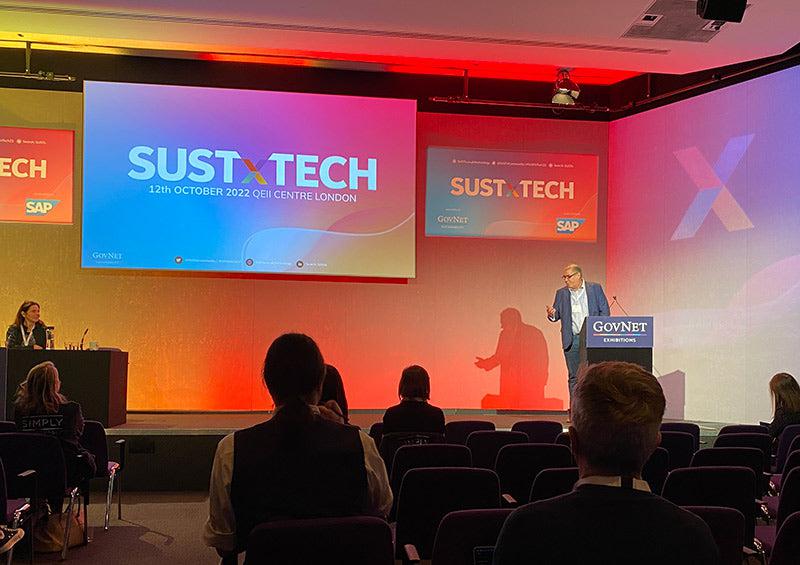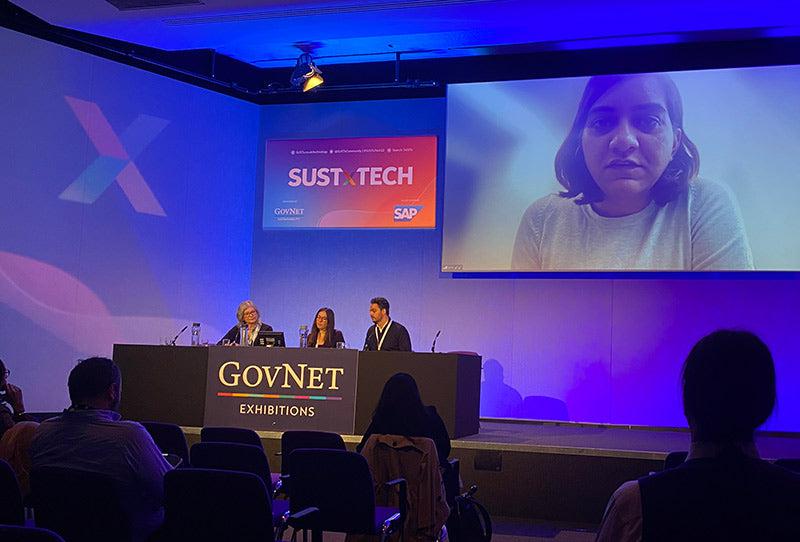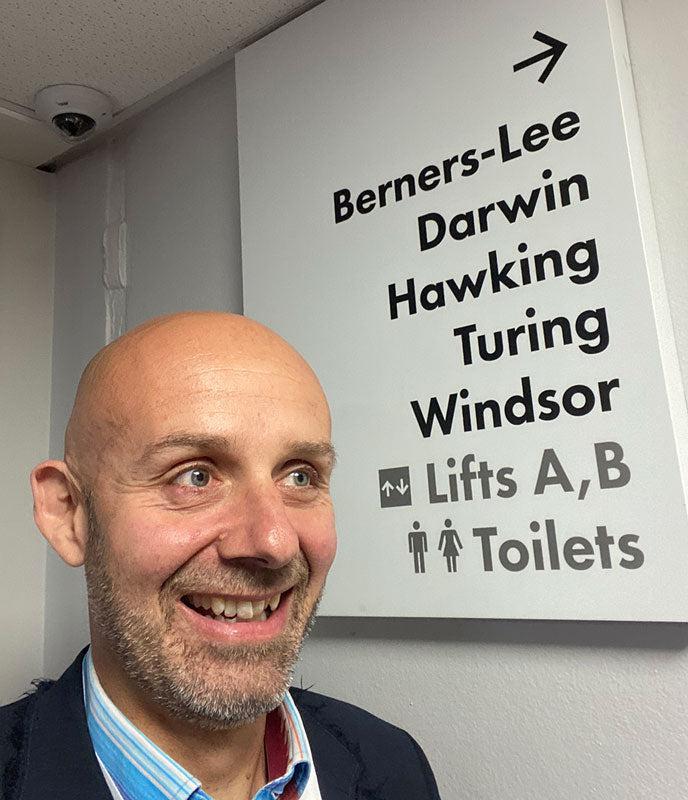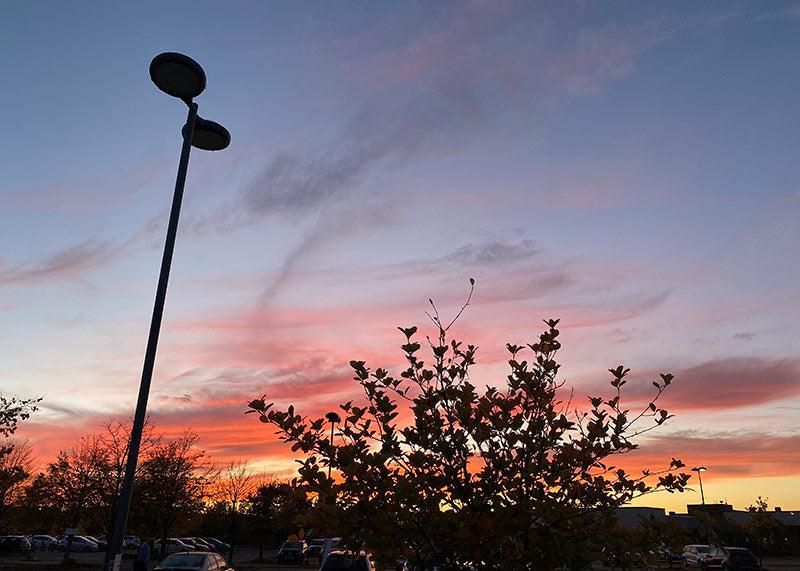Reflections on the first SUSTx conference
Hats off to the team behind SUSTx, bringing together the incredible powers of technology and our climate, this feels like such a good place to be, a place that has been long overdue.
We know that there are plenty of people working hard in these spaces, and doing good things, but it is refreshing to see a conference created to encourage more, because we really can have #TechForGood, it’s not just a throwaway sentiment for social media.
Here’s our Top 10 takeaways, some of which are new, many of them develop and expands the things that we have had an interest in for some time.
First and foremost - Technology has the potential to do a lot of good things! This remark was made in the introduction by Matt Pumfrey and was echoed around the conference by just about everyone we spoke to.
New technology could bring improved production, greater sustainability and possibly define solutions to our climate challenge. How? By working together, collaborating, sharing resources and reducing our consumption of the precious materials from our planet. Working in smarter ways, as a global community. These are a large part of the solution but there are some big problems that need to be addressed.
-
Product life
There was whole hearted agreement that this is currently set way too short. We should be able to keep using a functioning device for more than 5 years, but the inbuilt software obsolescence deny’s us this opportunity.
The products themselves are capable of much more. We need to reframe the ‘chase to keep up’ mantra that has proliferated every sector for the past century and start looking at the power of what we already have. This sounds so easy when you put in down in a single sentence, but the reality is a massive mind-set shift that is going to take a long time (and/or increased frequency of major natural disasters) to change.

-
Be more efficient
Re-use what we have instead of buying new. Urban mining is a term often used to re-evaluate products at their perceived end-of-life. These devices are packed full of precious metals and useful pieces of technology that can be re-used, up-cycled and make meaningful contributions to all aspects of life for many years to come.
-
Programming
The current thinking is insular, we have lots of small groups of self-serving people and teams (usually within a business or organisation) with little or no sharing of experience or resources outside their organisation. All too often this is the case even within the organisation.
This problem is amplified with IP and patents where companies seek to extract extended value from R&D. We need to develop an open sharing platform that works for the majority with open resources and communication - sharing of best practice and empowering all.
But this, like point 1 above, requires change on a level that we have not seen before. There are a few signs that this is starting to happen, with some global organisations and businesses now actively working together to overcome mutual hurdles. Unfortunately this is not the norm that it should be, collaborative projects should spread knowledge, pass on learning and empower all of the participants. We all get the theory, but the practise remains a struggle.

-
AI and machine learning
AI and machine learning 'could' have the potential to help us work through the massive data/tasks that people are either not accurate delivering or feel is ‘below them’. This sounds great but we are still newbie’s in this space, taking our first footsteps and very much learning about the application of AI, the pro’s and con’s.
Recognising that every algorithm will have its bias – after all it was created by a human, therefore bias will be present throughout the process. We need to fully understand how that affects the outcomes of the process and what can be done to mitigate it. These are crucial oversights that are at the heart of all machine learning and block chain solutions.
-
Recognise that we are losing a massive skill set and vast amounts of experience every day.
As the older generation feel increasingly remote and disconnected from the digital world. We need to capture, learn and impart this knowledge to the younger generations, the people who will develop AI and other technologies.
Some of these skills are native to tribes and environments, ancestral skills and knowledge, accumulated over millennia. We simply cannot ignore these skills or rule them out as being no longer applicable.
The reality of this situation sees younger people armed with enthusiasm and time but unfortunately they are missing the knowledge or experience to realise the true potential of AI and the enhancements that it could bring.

-
Human and community are going to be significant parts of our technical future.
If we can just get over ourselves, drop the BS and genuinely collaborate then the biggest challenges we face can be overcome. We should be doing this NOW! Not when we are on the back foot, trying to undo the climate mess that we have created.
Thankfully there are few large corps who already see the value in collaborating to solve the big issues that are common across verticals. This collective learning is bringing new solutions and injecting new direction into all of those who participate. They are also supporting one another in common areas whilst increasing their point of difference from their nearest competitors.

-
SME’s have the ability to affect real change.
Big business can ‘afford’ to do these things now but aren’t agile enough to implement them. Start-ups and SME’s are the people that have access to the tech and the ability (often due to size) to move things forward. The big companies will then learn from the smaller ones.
-
Money
Investors are now demanding to see a business’s Climate Policies and Disaster Recovery Models before investing. They recognise that what we have seen over the past 20 years will be amplified in the future. Those who don’t have or don’t believe that they need this type of planning are losing investment.
Investors are only too aware that nothing is set in stone, they see Climate and a business’s approach to sustainability and climate care as a good indicator of that team/business’s ability to run a successful enterprise.
-
Many hands make light work
There are many businesses in the ESG sector that claim to be able to help you (as a business) with all of this. Some are quite literally offering the silver bullet of ‘we fix everything’.
And here we go again, there’s something within us human beings, something pre-historic that sees an opportunity, a way to make money and indulge ourselves and the cycle of problems start over again. The reality of these hamster-wheel micro existences has been known for so long, yet we seem unable to stop ourselves.

-
Hopefully the first of many SUSTx and other likeminded conferences
This was the first ever SUSTx technology event, bringing the tech community and climate community together, under the same roof, looking at where and how we can work together to help tackle the climate issues and broader ESG ambitions. It really got people talking and created connections.
Well done SUSTx, let’s hope that this is the beginning of something much bigger than any of us can currently envisage, something that will create community and nurture the innovation that we need to create sustainable solutions. I know that I will certainly go to the next event!
